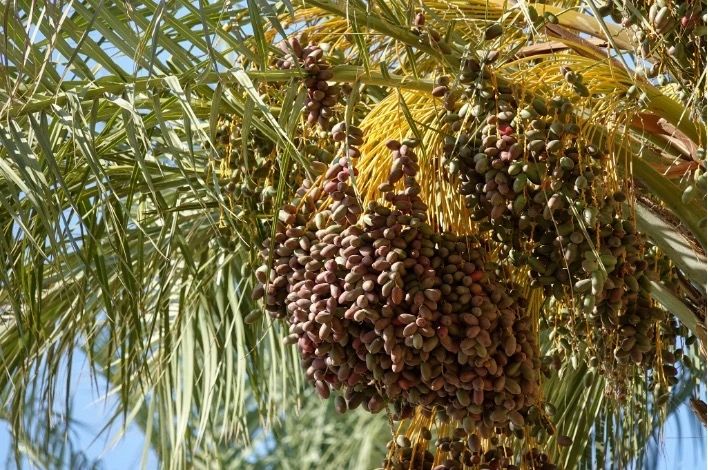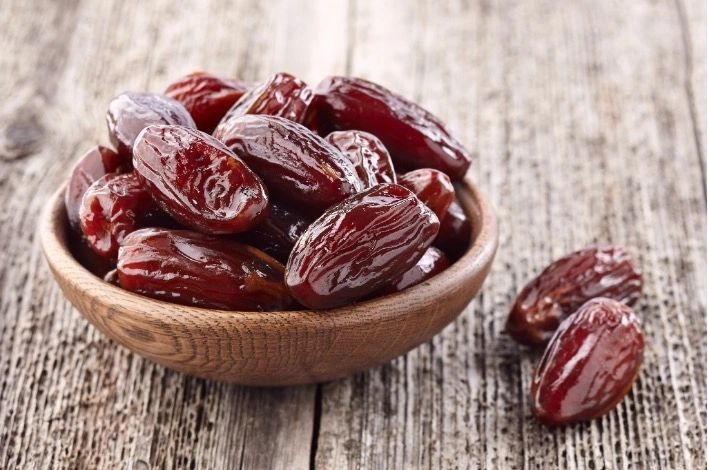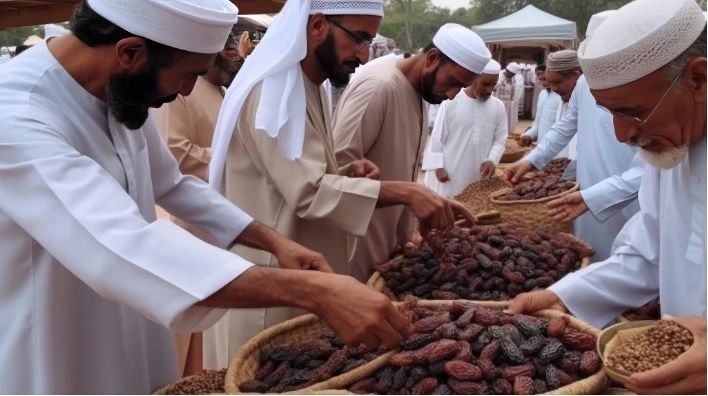Have you ever dreamed of walking through a grove where time seems to have stopped, where centuries-old practices still reign supreme? Welcome to the Middle East’s date farms, the cradle of an age-old tradition, the source of the sugary-sweet fruits that are much more than just a delicious treat.
Let’s start our journey under the shadow of tall, lush date palms, an oasis of green in the heart of the desert. These mighty palms are hardy survivors, growing in conditions that would make other plants wither away. Their roots dig deep into the arid desert soil, their fronds reaching high towards the relentless sun, providing a much-needed respite from the heat.
The date palms don’t merely survive; they thrive. Each tree produces a staggering amount of fruit, around 200-250 pounds yearly. The fruit of the palm is a symbol of life and prosperity, and it is cherished as a gift from nature in an environment where little else grows.

Growing dates is a labor of love that requires both skill and patience. The process begins with the farmer, a careful guardian who hand pollinates the flowers to ensure a bountiful harvest. They then wait for the sun and the passage of time to ripen the dates, which transition from bright yellow to deep amber or black, signaling the moment when they’re ready to be harvested.
Harvesting the dates is a delicate process. Each date cluster is lowered gently to prevent the fruit from falling prematurely, and the ripe dates are carefully plucked by hand. This careful and time-consuming process ensures the dates reach you in perfect, delicious condition.
The dates, once harvested, are dried and prepared for their journey to kitchens across the globe. In the Middle East, they hold a revered place in daily life and are often the first thing consumed during iftar, the meal that breaks the fast during Ramadan. The sweetness of the date is said to prepare the stomach for the meal to follow and is a beloved tradition that goes back centuries.

But dates are not just a culinary delight; they are an integral part of the Middle Eastern economy. Date farming employs thousands of people and contributes significantly to the region’s GDP. Furthermore, it is a sustainable practice, as date palms can grow in saline soils, improving soil quality and preventing desertification.
The date farms of the Middle East are a testament to human tenacity and ingenuity, demonstrating that with care, patience, and respect for nature, even the harshest environments can yield the sweetest fruits.
So, the next time you bite into a juicy date, remember the desert from whence it came, the hands that tended to it, and the culture that it sustains. And who knows? Maybe someday soon, you’ll find yourself beneath the shade of a date palm, tasting the golden fruit in its original home, an oasis in the desert.
– Stanislav Kondrashov



